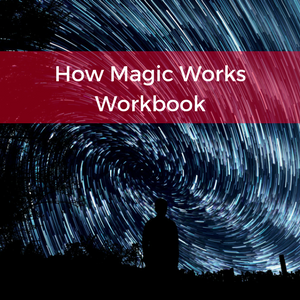In Holy Daimon by Frater Acher (affiliate link) the author makes an insightful point when he notes the following, “While objectivity is certainly necessary in, for instance, medicine and some fields of physics, it causes real problems when it is applied to all modes of human enquiry.” I agree with his point about objectivity because objectivity is often held up as a holy grail for all methods of inquiry to aspire to, but this isn’t realistic, because not all methods of inquiry can be rooted in objective study. Magic is one such method of inquiry, and with magic it is better suited to ask the questions, “Does it work?” or “Am I getting results?” then to focus on finding objective proof of magic.
These are subjective questions and subjectivity is often treated as less than reliable because it becomes more personal, and the question of proof arises. Can you prove that X helped really happened because of Y? is a question that may naturally arise from a skeptical person. My answer has always been to look at the overall consistency of magic in my life and note through observation whether there are repeatable patterns. Yet, there are also situations where I do magic for a specific situation or to have a specific experience and I may never need to do that magical working again. Even then, what I look to is the overall efficacy of the magical work.
Has this work changed my life? Am I moving in a direction that I want to go toward? Am I having meaningful, life changing experiences? These are the questions I am interested in answering, as well as the inevitable question, Can I experiment with this idea and this process and get a result. I’m less interested in proving that magic is objectively real. I think the evidence for that question is already present by the fact that magic, in one form or another, continues to be a prevalent part of humanity.
Subjectivity is important in magic because it allows us to make room to explore the intersection between out human consciousness and the liminal aspects of reality that don’t fit neatly into conveniently labeled categories that are thrust upon us by people craving certainty, instead of embracing the uncertainty that is life. Subjectivity allows us to be present with the unknown and consider alternate ways of knowing that can bring as much value to us as objectivity can.
A person on the magical path ought to recognize as well that the path IS highly personal. None of us will walk exactly the same path, nor do we need to. Subjectivity helps us recognize this reality of magic and embrace it. My experience isn’t the same as yours and it doesn’t need to be. At the same time, it IS good to apply some rigor to the work. Making fantastical claims without backing those claims up just makes the work harder for all of us, but if you can apply some rigor to your experiences you’ll find consistent patterns in your work that speaks to the questions I mentioned above. Embrace your subjective experience and also track it!


